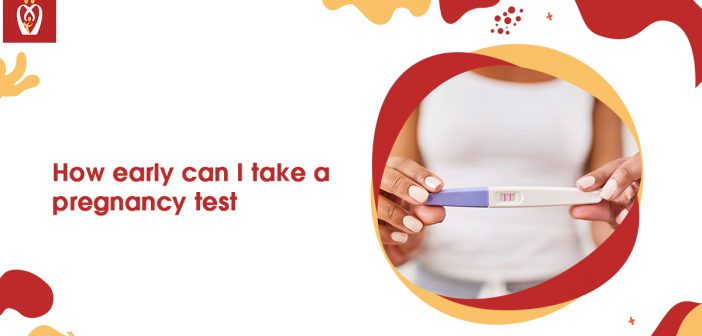The issue of when to take an early pregnancy test can be a significant cause of anxiety for many people. The stress is caused by their desire to become pregnant. However, it’s critical to take the test appropriately to increase your chances of receiving an accurate result. So how do you know when it’s the best time to take a test? Does it make a difference when you take an early pregnancy test?
Making the Choice
If you’re trying to get pregnant, you might think about taking an early pregnancy test because your period is late or you’re experiencing pregnancy symptoms. Or maybe you’re worried that your birth control method didn’t work (or you forgot to use contraception).
You might spend the entire two-week wait discussing when to pee on a stick if you’re trying to conceive. Is it better to wait until your menstruation is beyond due? When is the best time to visit?
Taking an early test may seem like an intelligent method to determine if you’re expecting straight away. However, if you are pregnant, taking the test early may negatively impact you. For example, when is the best time for you to cycle?
Human chorionic gonadotropin (HCG) is a hormone that is detected in urine by over-the-counter early pregnancy tests (HCG). If you’re pregnant, HCG is only present. The hormone is released if a fertilised egg attaches outside the uterus or to the uterine lining.
There are several methods for collecting urine for the test. However, depending on which test you take, you may be required to:
- Fill a cup halfway with pee and dip a testing stick into it.
- Place the testing stick in the area of your expected urine stream so that it will catch your urine midstream. Next, collect your urine in a cup and use an eyedropper to move a small amount of fluid into a particular container.
- According to Cleveland Clinic, most tests are 99 per cent effective if administered after a missed period. What’s more, you can do it in the comfort of your own home. To view the results, simply open the test, follow the instructions, and wait the recommended amount of time.
The tests will present your results in one of the following ways after the specified waiting period has passed:
a colour change, a line, or a symbol, such as plus or minus the words “pregnant” or “not pregnant.”
When can you take an early pregnancy test?
For the best accurate result, wait until the week following your missed menstruation to take an early pregnancy test.
If you don’t want to wait until your period has skipped, wait for at least one to two weeks after you’ve had sex. If you’re pregnant, it takes time for your body to produce measurable quantities of HCG. This usually takes seven to twelve days after an egg has been successfully implanted.
If you take the test too early in your cycle, you can get an erroneous result.
Here are several indicators that it’s time to get an early pregnancy test.
-
You haven’t had your period in a while.
- A missed period is one of the first and most dependable indications of pregnancy.
- It can be challenging to tell if you’re late if you don’t keep a close eye on your cycle. A 28-day menstrual cycle is typical among women. If it’s been more than a month since your last period, you might consider taking a test.
- Keep in mind that stress, nutrition, exercise, and some medical issues might cause your period to be delayed or skipped.
- If you think you’re pregnant, pay attention to your flow. Light bleeding or spotting is usual in the first few weeks when the egg sinks further into the uterine lining during implantation. Any differences in the colour, texture, or blood volume should be noted.
- If you have bleeding and a positive pregnancy test, see your doctor.
-
You’re in pain.
Implantation might also make you feel like you’re having menstruation cramps. You may experience this discomfort in early pregnancy and believe your period is on its way, but it never arrives.
Hormone levels differ from woman to woman and from pregnancy to pregnancy.
As your pregnancy progresses and you create more oestrogen and progesterone, your body begins to adapt to support the baby’s growth.
Because of the increased blood flow, your breasts may feel sensitive and appear more prominent. In addition, your nipples may hurt, and the veins beneath your skin may appear darker.
This symptom isn’t usually suggestive of pregnancy because many women feel breast soreness in the days leading up to their menstruation.
Conclusion
The day after your expected period, in the morning hours, with your first urine of the day, is the optimal time to take an early pregnancy test. However, it’s natural if you’re eager to see results and are inclined to test sooner.




